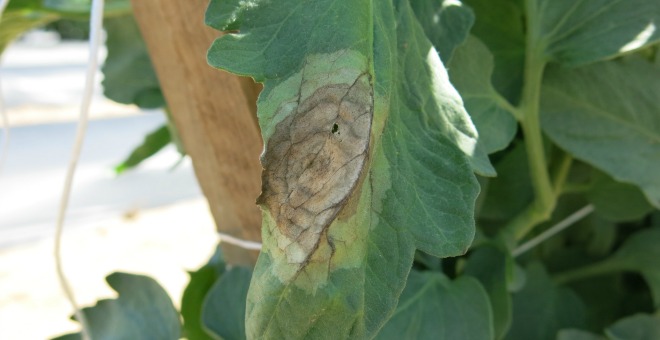Jul 25, 2019Cornell Extension: Late blight in northwest Pennsylvania
Late blight this month was found in Pennslyvania’s Erie County, which borders of Ohio to the west, New York to the east and Lake Erie to the north.
Late blight is a devastating airborne disease of tomatoes and potatoes best known for causing the Irish Potato famine. Late blight is caused by a fungus-like organism that spreads dozens of miles on storm fronts.
Late blight can kill plants in just one week. Disease spots are often dark gray to brown in color and may or may not have a ring of pale green tissue around them. They are often irregular in shape and size, and often become as large as a quarter. Leaf spots will often have small fuzzy white spores on the underside of the leaf in wet and humid conditions. Late blight will put dark brown to black smears on plant stems, as if someone took a small, muddy paint brush to the plants. Tomato fruit may also develop large, greasy-looking, brown, gray, or black smears on the upper part of the fruit. Late blight does not resemble yellowing leaves with lots of small black specks that are worst at the bottom of the plant.
As this disease is aggressive and very damaging to area farmers, Cornell Cooperative Extension asks that anyone suspecting they have late blight please contact their local CCE office for assistance. In Chautauqua County, the office can be reached at 716-664-9502. Commercial vegetable farmers may contact the Cornell Vegetable Program at 585-406-3419.
— Cornell Cooperative Extension of Chautauqua County
RELATED: Late blight detected in southern Washington, central Wisconsin
Above: An example of late blight (Phytophthora infestans) on tomato leaf. Photo: North Carolina Cooperative Extension















